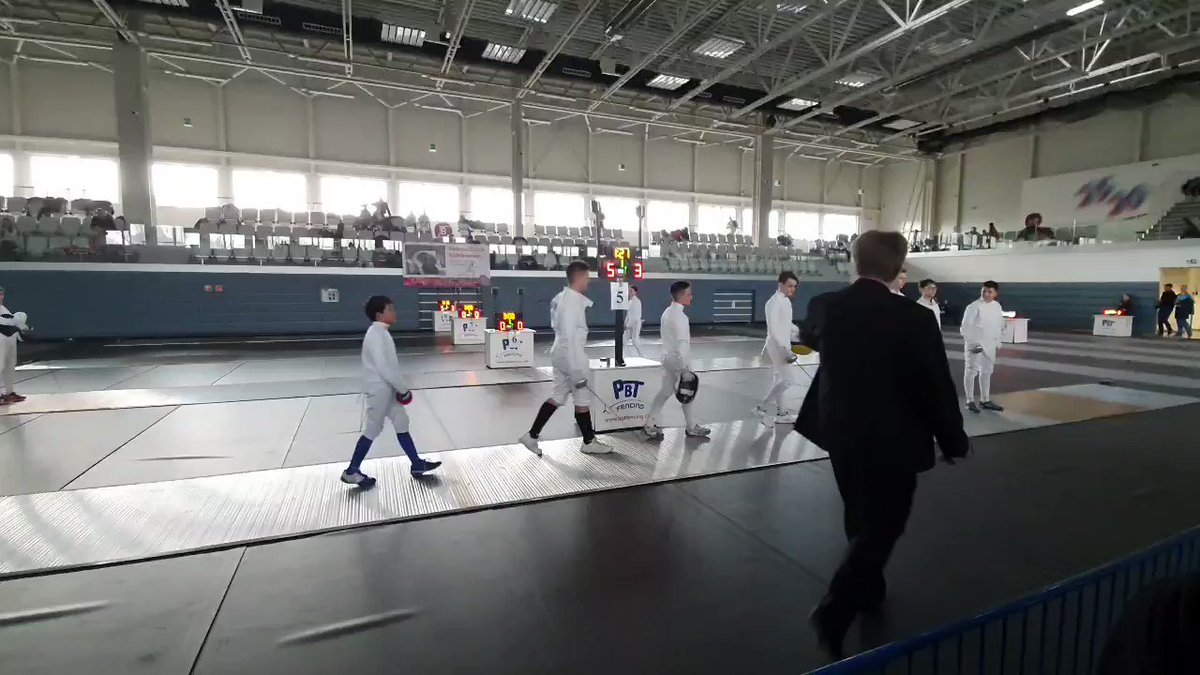
Most fencing classes, lessons, and practice sessions are time constrained, by the availability of facilities and instructors, and by the time available in the fencers' lives for training for their sport. This forces fencing training activities to try to do many training tasks in a single session. As coaches we have to improve and teach technique, train for competition conditions, increase the fencer's speed and strength, develop self-confidence and fighting spirit, and improve his or her ability to apply techniques tactically in the bout... all in one or two lessons a week that may range from 5 to 60 minutes in length. That is a challenging task, and progress in one area comes at the cost of progress in other areas.
This means that any approach that shifts a significant training load from the individual or group lesson has a potential to improve the capabilities of the athlete. One area in which this can be done relatively easily is in conditioning activities designed to improve athlete fitness for competition.
There are five important principles when considering conditioning activities for athletes in any sport:
Fitness is a mix of strength, flexibility, speed, and endurance. A conditioning program should address all of these elements.

There are two general classifications of fitness: general fitness and sport specific fitness. General fitness provides a good basic capability. Sports specific fitness prepares the athlete to fence.
As the name suggests sport specific fitness is high sports specific. Fitness for long distance running or football is not fitness for fencing. The physical requirements of the sports are very different, and activity which does not address a sport's requirements may actually reduce athlete performance. The closer physical training movements are to the movements of the sport, the more specific and the better the conditioning.
The level of conditioning activity must be integrated into the macrocycle, mesocycle, and microcycle of the periodized training program.
Conditioning is a highly specialized field of coaching in which the knowledge base is constantly evolving. Get professional advice in designing your training program. For example, at any fencing tournament you will find fencers sitting on the floor stretching before their bouts. And yet there has been general acceptance among the training community for at least a decade that static stretching before exercise does not improve flexibility or reduce injury - it inhibits performance.

What all of this means is that coaches can and should assign solo conditioning activities for their athletes to do as part of each week's microcycle. These activities should address strength, flexibility, speed, and endurance. Whether they are general or specific or mixed depends on the athlete's development and on the mesocycle. For example, functional training for core development and strength training are traditional activities for the off-season (although fencing increasingly has no off-season period). Speed training is more applicable to early season. Maintenance activities keep the fencer at the appropriate level during the main body of the season.
Some fencers will already have access to a gym and a personal trainer as part of a health club membership. You may be able to refer others to sports training gyms. In both of these cases, it is to the athlete's advantage if you can work with their trainer to provide the information needed to design activities for fencing and to fit within your annual training plan.